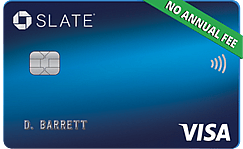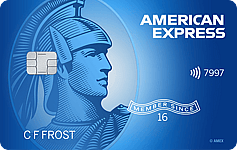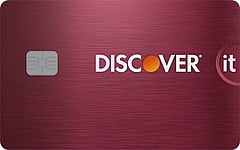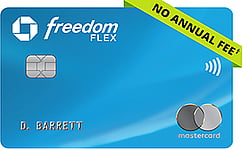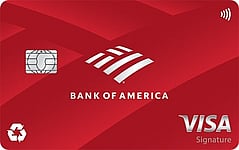Best 0% APR Credit Cards of February 2026
Updated: Feb 6, 2026+ 2 more+ 2 more
A zero-percent or 0% APR credit card saves you money by stopping the clock on interest for a year or more. Got a big expense coming up? Put it on one of these credit cards and then pay it off without finance charges. Many of the best zero-percent credit cards not only come with a long 0% APR period, but also earn rewards and offer bonuses that can translate into big discounts on big purchases.
Why trust NerdWallet
400+ credit cards reviewed by our team of experts (See our top picks)
80+ years of combined experience covering credit cards and personal finance
27,000+ hours spent researching and reviewing financial products in the last 12 months
Objective comprehensive ratings rubrics (Methodology)
NerdWallet's credit cards content, including ratings and recommendations, is overseen by a team of writers and editors who specialize in credit cards. Their work has appeared in The Associated Press, USA Today, The New York Times, MarketWatch, MSN, NBC's "Today," ABC's "Good Morning America" and many other national, regional and local media outlets. Each writer and editor follows NerdWallet's strict guidelines for editorial integrity.
Show SummaryHide Summary
NerdWallet's Best 0% APR Credit Cards of February 2026
Wells Fargo Reflect® Card: Best for Longest intro APR period
Chase Freedom Unlimited®: Best for All-around cash back
U.S. Bank Shield™ Visa® Card: Best for Long intro period and side perks
Discover it® Cash Back: Best for Quarterly categories and matching bonus
Blue Cash Everyday® Card from American Express: Best for Grocery, gas and online rewards
Chase Freedom Flex®: Best for Quarterly categories and a cash bonus
Bank of America® Unlimited Cash Rewards credit card: Best for Simplicity and relationship rewards
Bank of America® Customized Cash Rewards credit card: Best for Customizable cash back
Capital One Quicksilver Cash Rewards Credit Card: Best for Simple rewards
Chase Slate®: Best for Longest intro APR period
Best 0% APR Credit Cards From Our Partners
| Credit card | NerdWallet rating | Annual fee | Intro APR | Regular APR | Learn more |
|---|---|---|---|---|---|
Apply Nowon Chase's website on Chase's website | Best for All-around cash back | $0 | 0% intro APR on Purchases and Balance Transfers for 15 months | 18.24%-27.74% Variable APR | Apply Nowon Chase's website on Chase's website |
Apply Nowon Chase's website on Chase's website | Best for Longest intro APR period | $0 | 0% intro APR on Purchases and Balance Transfers for 21 months | 18.24%-28.24% Variable APR | Apply Nowon Chase's website on Chase's website |
Apply Nowon American Express' website on American Express' website | Best for Grocery, gas and online rewards | $0 | 0% intro APR for 15 months on purchases and balance transfers | 19.49%-28.49% Variable APR | Apply Nowon American Express' website on American Express' website |
Apply Nowon Wells Fargo's website on Wells Fargo's website | Best for Longest intro APR period | $0 | 0% intro APR for 21 months from account opening on purchases and qualifying balance transfers | 17.49%, 23.99%, or 28.24% Variable APR | Apply Nowon Wells Fargo's website on Wells Fargo's website |
Apply Nowon Bank of America's website on Bank of America's website | Best for Simplicity and relationship rewards | $0 | 0% intro APR on Purchases for 15 billing cycles and 0% intro APR on Balance Transfers for 15 billing cycles for any balance transfers made in the first 60 days | 17.49%-27.49% Variable APR | Apply Nowon Bank of America's website on Bank of America's website |
Apply Nowon U.S. Bank's website on U.S. Bank's website | Best for Long intro period and side perks | $0 | 0% intro APR for 18 billing cycles on purchases and balance transfers | 16.99%-27.99% Variable APR | Apply Nowon U.S. Bank's website on U.S. Bank's website |
Apply Nowon Discover's website, on Discover's website, or call 800-347-0264 | Best for Quarterly categories and matching bonus | $0 | 0% intro APR for 15 months on purchases and balance transfers | 17.49%-26.49% Variable APR | Apply Nowon Discover's website, on Discover's website, or call 800-347-0264 |
Apply Nowon Chase's website on Chase's website | Best for Quarterly categories and a cash bonus | $0 | 0% intro APR on Purchases and Balance Transfers for 15 months | 18.24%-27.74% Variable APR | Apply Nowon Chase's website on Chase's website |
Apply Nowon Bank of America's website on Bank of America's website | Best for Customizable cash back | $0 | 0% intro APR on Purchases for 15 billing cycles and 0% intro APR on Balance Transfers for 15 billing cycles for any balance transfers made in the first 60 days | 17.49%-27.49% Variable APR | Apply Nowon Bank of America's website on Bank of America's website |
Apply Nowon Capital One's website on Capital One's website | Best for Simple rewards | $0 | 0% intro APR for 15 months on purchases and balance transfers; balance transfer fee applies | 18.49%-28.49% Variable APR | Apply Nowon Capital One's website on Capital One's website |
Our pick for: All-around cash back
Apply Nowon Chase's websiteon Chase's websitePurchase intro APR0% intro APR on purchases for 15 monthsBalance transfer intro APR0% intro APR on balance transfers for 15 monthsRegular APR18.24%-27.74% Variable APRAnnual fee$0Rewards rate1.5%-5%CashbackIntro offer$200Recommended credit scoreRewards breakdown
5%Cash back on travel purchased through Chase Travel℠.3%Cash back on drugstore purchases.3%Cash back on dining at restaurants, including takeout and eligible delivery services.1.5%Cash back on all other purchases.Card details
- Earn a $200 Bonus after you spend $500 on purchases in your first 3 months from account opening
- Enjoy 5% cash back on travel purchased through Chase Travel℠, our premier rewards program that lets you redeem rewards for cash back, travel, gift cards and more; 3% cash back on drugstore purchases and dining at restaurants, including takeout and eligible delivery service, and 1.5% on all other purchases.
- No minimum to redeem for cash back. You can choose to receive a statement credit or direct deposit into most U.S. checking and savings accounts. Cash Back rewards do not expire as long as your account is open!
- Enjoy 0% Intro APR for 15 months from account opening on purchases and balance transfers, then a variable APR of 18.24% - 27.74%.
- No annual fee – You won't have to pay an annual fee for all the great features that come with your Freedom Unlimited® card
- Keep tabs on your credit health, Chase Credit Journey helps you monitor your credit with free access to your latest score, alerts, and more.
- Member FDIC
- View Rates & Fees
NerdWallet's take
The Chase Freedom Unlimited® earns 5 stars for its outstanding cash back, but it also packs a strong money-saving punch with a good introductory APR offer for new cardholders. In terms of rewards, you get bonus cash back on travel booked through Chase and at restaurants and drugstores, as well as a higher-than-usual ongoing rate on spending outside those categories. You can even transfer your rewards to other Chase-branded credit cards for greater flexibility.
Read full reviewProsIntro APR period of more than a year.
Rewards: 5% cash back on travel booked through Chase; 3% cash back at restaurants and drugstores; and 1.5% on other purchases.
Rewards can be transferred to Chase's Sapphire cards for greater redemption value.
Bonus offer.
$0 annual fee.
ConsDepending on your spending patterns and appetite for complexity, juggling multiple bonus categories and rates can be complicated compared with a card that earns a flat rewards rate.
Our pick for: Longest intro APR period
Apply Nowon Chase's websiteon Chase's websitePurchase intro APR0% intro APR on purchases for 21 monthsBalance transfer intro APR0% intro APR on balance transfers for 21 monthsRegular APR18.24%-28.24% Variable APRAnnual fee$0Rewards rateN/AIntro offerN/ARecommended credit scoreCard details
- 0% Intro Offer- Enjoy 0% Intro APR for 21 months on purchases and balance transfers, then a variable APR of 18.24% - 28.24% thereafter
- No Annual Fee- You won't have to pay an annual fee for all the great features that come with your Slate Card
- Zero Liability Protection & Fraud Protection - You won’t be held responsible for unauthorized charges made with your card. We help safeguard your credit card purchases using sophisticated fraud monitoring. We monitor for fraud 24/7 and can text, email or call you if there are unusual purchases on your credit card.
- Chase Pay Over Time- Access more options to pay over time for eligible purchases made with your participating Chase credit card. With Pay Over Time, you can break up eligible purchases you've already made
- Get more purchasing power: Chase Slate® cardmembers may be eligible for a credit limit increase in as few as six months.
- Stay protected with purchase & travel benefits - Enjoy peace of mind with purchase protection, which safeguards your eligible new items against damage or theft for 120 days from the date of purchase, up to $500 per item. Plus, extended warranty protection adds an extra year to U.S. manufacturer warranties of three years or less, giving you up to four full years of coverage from the date of purchase
- Credit Journey: Access your credit score, receive customized score improvement plans from Experian™, and benefit from identity monitoring—all for free with Chase Credit Journey®
- Member FDIC
- View Rates & Fees
NerdWallet's take
The Chase Slate® doesn't require a lot of explanation. You get one of the longest introductory APR periods available from a major credit card issuer — a 21-month reprieve from interest. If you're looking to finance a big expense over a good, long stretch, it's for you. The drawbacks are the same as on most cards with an extra-long 0% intro period: The card doesn't have a bonus offer, ongoing rewards or perks. The card's star rating gets pulled down a bit by its 5% balance transfer fee (minimum $5), which is on the high end of the standard range of 3%-5%. If you're only using the card for purchases, though, that's a non-factor.
Read full reviewProsThis long introductory period on this card is the whole story: 0% intro APR on Purchases and Balance Transfers for 21 months, and then the ongoing APR of 18.24%-28.24% Variable APR.
$0 annual fee.
ConsNo rewards, so this card's value beyond the 0% period is limited.
No bonus offer.
Our pick for: Grocery, gas and online rewards
Apply Nowon American Express' websiteon American Express' websitePurchase intro APR0% intro APR on purchases for 15 months from the date of account openingBalance transfer intro APR0% intro APR on balance transfers for 15 months from the date of account openingAPR19.49%-28.49% Variable APRAnnual fee$0Rewards rate1%-3%CashbackIntro offer$200Recommended creditRewards breakdown
3%Cash back at U.S. supermarkets (up to $6,000 per year in purchases, then 1%).3%Cash Back on U.S. online retail purchases (up to $6,000 per year, then 1%).3%Cash Back at U.S. gas stations (up to $6,000 per year, then 1%).1%Cash Back on other purchases.Card details
- Earn a $200 statement credit after you spend $2,000 in purchases on your new Card within the first 6 months.
- No Annual Fee.
- Enjoy 0% intro APR on purchases and balance transfers for 15 months from the date of account opening. After that, 19.49% to 28.49% variable APR.
- Plan It®: Buy now, pay later with Plan It. Split purchases of $100 or more into equal monthly installments with a fixed fee so you don’t have the pressure of paying all at once. Simply select the purchase in your online account or the American Express® App to see your plan options. Plus, you’ll still earn rewards on purchases the way you usually do.
- Earn 3% cash back at U.S. supermarkets, 3% cash back on U.S. online retail purchases, 3% cash back at U.S. gas stations, on eligible purchases for each category on up to $6,000 per year in purchases (then 1%). Cash back is received in the form of Reward Dollars that can be redeemed as a statement credit and at Amazon.com checkout.
- Get up to a $7 monthly statement credit after using your enrolled Blue Cash Everyday® Card for a subscription purchase, including a bundle subscription purchase, at Disneyplus.com, Hulu.com, or Plus.espn.com U.S. websites. Subject to auto-renewal.
- Apply with confidence. Know if you're approved for a Card with no impact to your credit score. If you're approved and you choose to accept this Card, your credit score may be impacted.
- Terms Apply.
- View Rates & Fees
NerdWallet's take
If you've got a major purchase you're looking to finance, there's a good chance you'll be making it online (or have the option to do so), and the Blue Cash Everyday® Card from American Express is one of the best cards you'll find for bonus rewards on online spending. Especially noteworthy is that the cap on the amount of spending eligible for the elevated rewards rate is assessed on an annual basis rather than quarterly, meaning that more of your big purchase will be able to qualify. This card also has outstanding rewards in other major categories. And of course there's the good intro APR period.
Read full reviewProsIntro APR period of more than a year.
Rewards: 3% cash back at U.S. supermarkets, at U.S. gas stations and on U.S. online retail purchases (on up to $6,000 per year in spending in each category); 1% cash back on other purchases.
Welcome offer.
$0 annual fee.
Terms apply.
ConsBonus rewards are capped.
Depending on your spending patterns, a flat-rate card that earns the same rewards rate on all purchases might be less of a hassle.
Terms apply.
Our pick for: Longest intro APR period
Apply Nowon Wells Fargo's websiteon Wells Fargo's websitePurchase intro APR0% intro APR for 21 months from account opening on purchasesBalance transfer intro APR0% intro APR for 21 months from account opening on qualifying balance transfersRegular APR17.49%, 23.99%, or 28.24% Variable APRAnnual fee$0Rewards rateN/AIntro offerN/ARecommended credit scoreCard details
- Apply Now to take advantage of this offer and learn more about product features, terms and conditions.
- 0% intro APR for 21 months from account opening on purchases and qualifying balance transfers. 17.49%, 23.99%, or 28.24% variable APR thereafter; balance transfers made within 120 days qualify for the intro rate, BT fee of 5%, min: $5.
- $0 annual fee.
- Up to $600 of cell phone protection against damage or theft. Subject to a $25 deductible.
- Through My Wells Fargo Deals, you can get access to personalized deals from a variety of merchants. It's an easy way to earn cash back as an account credit when you shop, dine, or enjoy an experience simply by using an eligible Wells Fargo credit card.
- View Rates & Fees
NerdWallet's take
The Wells Fargo Reflect® Card offers maximum breathing room for paying off a big purchase, with an introductory APR period approaching two years. Most cards top out at 12-15 months, and a fair number stretch to 18 months, but few go this far. The biggest downsides? There's no bonus offer and no rewards, and the ongoing APR is nothing to write home about, so there's limited value once that promotional period runs out. The card's rating also gets pulled down a bit by the 5% balance transfer fee ($5 minimum), which is on the high side. But if you're just looking to finance a large expense over as long a period as possible, this might be your card.
Read full reviewProsExceptional intro APR period that beats most cards on the market.
Cell phone protection.
$0 annual fee.
ConsYou won't earn ongoing rewards, aside from being able to opt in to one-time offers from My Wells Fargo Deals, so the card's usefulness after the promotional APR period runs out is limited.
No bonus offer.
Our pick for: Simplicity and relationship rewards
Apply Nowon Bank of America's websiteon Bank of America's websitePurchase intro APR0% intro APR on Purchases for 15 billing cyclesBalance transfer intro APR0% intro APR on Balance Transfers for 15 billing cycles for any balance transfers made in the first 60 daysRegular APR17.49%-27.49% Variable APRAnnual fee$0Rewards rate1.5%-2%CashbackIntro offer$200Recommended credit scoreRewards breakdown
2%Cash back on purchases for the first year from account opening.1.5%Cash back on all purchases after the first year from account opening.Card details
- $200 online cash rewards bonus after you make at least $1,000 in purchases in the first 90 days of account opening.
- Earn 2% cash back on purchases for the first year from account opening, with no limit to the amount of cash back you can earn.
- Thereafter, you’ll earn unlimited 1.5% on all purchases, with no expiration on rewards as long as your account remains open.
- With the Bank of America Preferred Rewards® program, members can earn 25%-75% more cash back on every purchase. That means you could earn 1.87%-2.62% cash back with Preferred Rewards. The Preferred Rewards bonus does not apply to the .5% first-year bonus.
- No annual fee.
- 0% Intro APR for 15 billing cycles for purchases, and for any balance transfers made in the first 60 days. After the Intro APR offer ends, a Variable APR that’s currently 17.49% - 27.49% will apply. A 3% Intro balance transfer fee will apply for the first 60 days your account is open. After the Intro balance transfer fee offer ends, the fee for future balance transfers is 4%. Balance transfers may not be used to pay any account provided by Bank of America.
- Contactless Cards - The security of a chip card, with the convenience of a tap.
- This online only offer may not be available if you leave this page or if you visit a Bank of America financial center. You can take advantage of this offer when you apply now.
NerdWallet's take
Unlike many of the other rewards cards on this list, the Bank of America® Unlimited Cash Rewards credit card has a rewards structure that just about anyone can keep track of: 1.5% cash back on purchases (2% in the first year). No, that's not the highest ongoing flat rate you can find — several cards are permanently 2% on everything. But if you are a member of the Bank of America® Preferred Rewards program, you earn higher rates. And besides, those other cards don't have an intro APR period for purchases as long as this one's.
Read full reviewProsIntro APR period of more than a year.
Simple rewards: 2% cash back on all purchases in the first year, and then 1.5% after that.
If you're a member of the issuer's Preferred Rewards program, you can boost your rewards rates by 25% to 75%.
Bonus offer.
$0 annual fee
ConsSimplicity comes with trade-offs: You don't have to keep track of bonus categories, but you'll also miss out on the elevated rewards rates that a bonus-category card can offer.
1.5% cash back on everything is a strong rate, but a growing number of cards pay 2%, and not just in the first year.
Our pick for: Long intro period and side perks
Apply Nowon U.S. Bank's websiteon U.S. Bank's websitePurchase intro APR0% intro APR on purchases for 18 billing cyclesBalance transfer intro APR0% intro APR on balance transfers for 18 billing cyclesRegular APR16.99%-27.99% Variable APRAnnual fee$0Rewards rate4%CashbackIntro offerN/ARecommended credit scoreRewards breakdown
4%Cash back on prepaid air, hotel and car reservations booked directly in the Travel Center.Card details
- 0% intro APR on purchases and balance transfers for 18 billing cycles. After that, a variable APR currently 16.99% - 27.99%.
- 4% cash back on prepaid air, hotel and car reservations booked directly in the Travel Center when you use your card.
- Get a $20 annual statement credit for 11 consecutive months of purchases.
- No annual fee.
- Cell Phone Protection: Your eligible cell phone can be reimbursed up to $600 in the event it is stolen or damaged when you pay your monthly cell phone bill with your card.
- Terms and conditions apply.
- View Rates & Fees
NerdWallet's take
Credit cards with an intro APR period this long for purchases don't typically offer spending rewards. And while the U.S. Bank Shield™ Visa® Card doesn't give you cash back or points for every purchase, you can earn some decent cash back on purchases through the issuer's travel portal. There's also an incentive to keep the card in your wallet — an annual $20 statement credit if you make a purchase for 11 consecutive months. Still, the primary draw is the lengthy break from interest.
Read full reviewProsSignificant 0% intro APR period of well over a year.
Rewards: 4% cash back on prepaid air, hotel and car reservations booked directly through U.S. Bank’s Rewards Center.
Annual $20 statement credit for 11 consecutive months of purchases.
Cell phone protection.
$0 annual fee.
ConsIt's possible to find lengthier intro APR offers — even on U.S. Bank's own website. And if you're willing to accept a slightly shorter intro APR window, you can find cards with superior rewards.
No bonus offer.
Our pick for: Quarterly categories and matching bonus
Apply Nowon Discover's website,on Discover's website, or call 800-347-0264Purchase intro APR0% intro APR on purchases for 15 monthsBalance transfer intro APR0% intro APR on balance transfers for 15 monthsRegular APR17.49%-26.49% Variable APRAnnual fee$0Rewards rate1%-5%CashbackIntro offerCashback Match™Recommended credit scoreRewards breakdown
5%Cash back on everyday purchases at different places you shop each quarter like grocery stores, restaurants, gas stations, and more, up to the quarterly maximum when you activate.1%Cash back on all other purchases.Card details
- INTRO OFFER: Unlimited Cashback Match for all new cardmembers. Discover will automatically match all the cash back you’ve earned at the end of your first year! There’s no minimum spending or maximum rewards. You could turn $150 cash back into $300.
- Earn 5% cash back on everyday purchases at different places you shop each quarter like grocery stores, restaurants, gas stations, and more, up to the quarterly maximum when you activate. Plus, earn unlimited 1% cash back on all other purchases.
- Redeem cash back for any amount. No annual fee.
- Get a 0% intro APR for 15 months on purchases. Then 17.49% to 26.49% Standard Variable Purchase APR applies, based on credit worthiness.
- Terms and conditions apply.
- View Rates & Fees
NerdWallet's take
The Discover it® Cash Back earns rich cash back while giving you plenty of breathing room to pay down a balance without interest. Although the rewards program takes a little work to manage — requiring you to activate the cash back categories online every three months — the effort is worth it. You also get Discover's signature bonus offer for new cardholders.
Read full reviewProsIntro APR period of more than a year.
Rewards: 5% cash back in rotating bonus categories that you activate (on up to $1,500 in spending per quarter); 1% back on other spending.
Has bonus offer.
$0 annual fee
ConsBonus rewards are capped.
It can be a hassle to track rotating bonus categories and opt in to them every quarter, compared with cards with a flat rewards rate or static categories.
You’ll have to wait a full year to collect your bonus.
Our pick for: Quarterly categories and a cash bonus
Apply Nowon Chase's websiteon Chase's websitePurchase intro APR0% intro APR on purchases for 15 monthsBalance transfer intro APR0% intro APR on balance transfers for 15 monthsRegular APR18.24%-27.74% Variable APRAnnual fee$0Rewards rate1%-5%CashbackIntro offer$200Recommended credit scoreRewards breakdown
5%Cash back on up to $1,500 in combined purchases in bonus categories each quarter you activate.5%Cash back on travel purchased through Chase Travel℠.3%Cash back on dining.3%Cash back at drugstores.1%Cash back on all other purchases.Card details
- Earn a $200 Bonus after you spend $500 on purchases in your first 3 months from account opening
- 5% cash back on up to $1,500 in combined purchases in bonus categories each quarter you activate. Enjoy new 5% categories each quarter!
- 5% cash back on travel purchased through Chase Travel℠, our premier rewards program that lets you redeem rewards for cash back, travel, gift cards and more
- 3% cash back on drugstore purchases and dining at restaurants, including takeout and eligible delivery service, and unlimited 1% cash back on all other purchases.
- No minimum to redeem for cash back. You can choose to receive a statement credit or direct deposit into most U.S. checking and savings accounts. Cash Back rewards do not expire as long as your account is open!
- 0% Intro APR for 15 months from account opening on purchases and balance transfers, then a variable APR of 18.24% - 27.74%.
- No annual fee – You won't have to pay an annual fee for all the great features that come with your Freedom Flex® card
- Keep tabs on your credit health - Chase Credit Journey helps you monitor your credit with free access to your latest score, real-time alerts, and more.
- Member FDIC
- View Rates & Fees
NerdWallet's take
If you're willing to put in a little work, the Chase Freedom Flex® offers high rewards potential that will endure after its solid 0% APR period runs out. Its rewards structure is a rather unique combination of permanent bonus categories (travel booked through Chase, restaurants, drugstores) and rotating categories that change every three months. Those quarterly categories commonly include major budget items like grocery stores and gas stations, although some more niche offerings creep in from time to time.
Read full reviewProsIntro APR period of more than a year.
Rewards: 5% cash back in bonus categories that change every three months (on up to $1,500 per quarter in spending, then 1%; activation required); 5% back on travel booked through Chase; 3% back at restaurants and drugstores; and 1% back on other purchases.
Rewards can be transferred among other eligible Chase credit cards to get greater value.
Bonus offer.
$0 annual fee.
ConsIt can be a hassle to track rotating bonus categories and opt in to them every quarter, compared with cards with a flat rewards rate or static categories.
Our pick for: Customizable cash back
Apply Nowon Bank of America's websiteon Bank of America's websitePurchase intro APR0% intro APR on Purchases for 15 billing cyclesBalance transfer intro APR0% intro APR on Balance Transfers for 15 billing cycles for any balance transfers made in the first 60 daysRegular APR17.49%-27.49% Variable APRAnnual fee$0Rewards rate1%-6%CashbackIntro offer$200Recommended credit scoreRewards breakdown
6%Cash back for the first year in the category of your choice (up to $2,500 in combined choice category/grocery store/wholesale club quarterly purchases).3%Cash back in the category of your choice after the first year (up to $2,500 in combined choice category/grocery store/wholesale club quarterly purchases).2%Cash back at grocery stores and wholesale clubs (up to $2,500 in combined choice category/grocery store/wholesale club quarterly purchases).1%Cash back on all other purchases.Card details
- Earn 6% cash back for the first year in the category of your choice: gas and EV charging stations; online shopping, including cable, internet, phone plans and streaming; dining; travel; drug stores and pharmacies; or home improvement and furnishings. You’ll automatically earn 2% cash back at grocery stores and wholesale clubs, and unlimited 1% cash back on all other purchases. After the first year from account opening, you’ll earn 3% cash back on purchases in your choice category.
- Earn 6% and 2% cash back on the first $2,500 in combined purchases each quarter in the choice category, and at grocery stores and wholesale clubs, then earn unlimited 1% thereafter. After the 3% first-year bonus offer ends, you will earn 3% and 2% cash back on these purchases up to the quarterly maximum.
- $200 online cash rewards bonus after you make at least $1,000 in purchases in the first 90 days of account opening.
- With the Bank of America Preferred Rewards® program, members can earn 25%-75% more cash back on every purchase. That means the 3% choice category could go up to 3.75%-5.25%. The Preferred Rewards bonus is not applied to the 3% first-year bonus.
- No annual fee and cash rewards don’t expire as long as your account remains open.
- 0% Intro APR for 15 billing cycles for purchases, and for any balance transfers made in the first 60 days. After the Intro APR offer ends, a Variable APR that’s currently 17.49% - 27.49% will apply. A 3% Intro balance transfer fee will apply for the first 60 days your account is open. After the Intro balance transfer fee offer ends, the fee for future balance transfers is 4%. Balance transfers may not be used to pay any account provided by Bank of America.
- Contactless Cards - The security of a chip card, with the convenience of a tap.
- This online only offer may not be available if you leave this page or if you visit a Bank of America financial center. You can take advantage of this offer when you apply now.
NerdWallet's take
The Bank of America® Customized Cash Rewards credit card combines a strong intro APR offer, a solid sign-up bonus and a rewards structure that lets you choose which purchases earn the highest cash-back rate. If you've got a big expense coming up, see whether it fits into one of this card's customizable 3% categories, which include such options as online shopping, travel and home improvement and furnishings. It can take a minute to master the details of this card, but it's a keeper for the long term.
Read full reviewProsIntro APR period of more than one year.
Customizable rewards: 3% cash back (6% in the first year) in a category you choose and 2% at grocery stores and wholesale clubs, on up to $2,500 per quarter in combined spending in those categories. All other purchases earn 1% cash back. (You can change your 3% category once a month.)
Cardholders who are eligible for the Bank of America® Preferred Rewards program can earn 25% to 75% higher rewards rates.
Bonus offer.
$0 annual fee.
ConsThe amount of spending eligible for the bonus rewards is capped, which means you might earn more rewards with a simple flat-rate card that pays an unlimited 1.5% or 2% on everything.
Our pick for: Simple rewards
Apply Nowon Capital One's websiteon Capital One's websitePurchase intro APR0% intro on purchases for 15 monthsBalance transfer intro APR0% intro on balance transfers for 15 months; balance transfer fee appliesRegular APR18.49%-28.49% Variable APRAnnual fee$0Rewards rate1.5%-5%CashbackIntro offer$200Recommended credit scoreRewards breakdown
5%Cash back on hotels, vacation rentals and rental cars booked through Capital One Travel.1.5%Cash back on every purchase, every day.Card details
- Earn a one-time $200 cash bonus after you spend $500 on purchases within 3 months from account opening
- Earn unlimited 1.5% cash back on every purchase, every day
- $0 annual fee and no foreign transaction fees
- Earn unlimited 5% cash back on hotels, vacation rentals and rental cars booked through Capital One Travel
- No rotating categories or sign-ups needed to earn cash rewards; plus, cash back won't expire for the life of the account and there's no limit to how much you can earn
- 0% intro APR on purchases and balance transfers for 15 months; 18.49% - 28.49% variable APR after that; balance transfer fee applies
- Top rated mobile app
- View Rates & Fees
NerdWallet's take
The Capital One Quicksilver Cash Rewards Credit Card is the original 1.5% cash back card and still the best-known name in the 1.5% game. Less known but no less significant is its lengthy intro APR period. You can find other cards that pay a higher flat rate, but they usually don't give you as much breathing room to pay down purchases without interest.
Read full reviewProsIntro APR period of more than a year.
Simple rewards: 1.5% cash back on all purchases, plus 5% cash back on hotels, vacation rentals and rental cars booked through Capital One Travel.
Bonus offer.
$0 annual fee.
ConsSimplicity is central to this card's appeal, but depending on how you spend money, you might earn more rewards with a card that pays higher rates in specific categories.
1.5% back on all purchases is decent, but a growing number of cards offer a flat rate of at least 2% back.
More about our picks: Best 0% APR credit cards
Wells Fargo Reflect® Card
Our pick for: Longest intro APR period
The Wells Fargo Reflect® Card has one of the longest intro APR periods on the market — approaching almost two years. You'll be hard-pressed to find a longer interest-free promotion, and it applies to both purchases and qualifying balance transfers. Read our review.
Chase Slate®
Our pick for: Longest intro APR period
The Chase Slate® offers one of the longest introductory APR periods available on a card from a major issuer, offering you a break on interest approaching two years. The APR offer is pretty much the whole story of the card, as there are no rewards, no perks and no bonus offer. And unlike an earlier version of the Slate, it charges a balance transfer fee. Read our review.
U.S. Bank Shield™ Visa® Card
Our pick for: Long intro APR period + side perks
The $0-annual-fee U.S. Bank Shield™ Visa® Card is a solid get-out-of-debt credit card, thanks to its lengthy interest-free promotion. It also offers modest rewards and cell phone insurance, which could make the card worth keeping around after you've paid off your balance. Read our review.
Chase Freedom Unlimited®
Our pick for: All-around cash back
The Chase Freedom Unlimited® was already a fine card when it offered 1.5% cash back on all purchases. Now it's even better, with bonus rewards on travel booked through Chase, as well as at restaurants and drugstores. On top of all that, new cardholders get a 0% introductory APR period and the opportunity to earn a sweet bonus. Read our review.
Capital One Quicksilver Cash Rewards Credit Card
Our pick for: Simple rewards
The original 1.5% flat-rate cash-back card still holds its own in a now-crowded field and the 5% cash back offered on hotels, vacation rentals, and car rentals booked through Capital One Travel offers the opportunity to earn more rewards. The Capital One Quicksilver Cash Rewards Credit Card offers a compelling combination of a good rewards rate, redemption flexibility, sign-up bonus and introductory APR period (see rates and fees). Read our review.
Bank of America® Unlimited Cash Rewards credit card
Our pick for: Simplicity + relationship rewards
The Bank of America® Unlimited Cash Rewards credit card is one of many 1.5% flat-rate cash-back cards on the market. It comes with a decent sign-up bonus, a generous intro APR period, and the potential to supercharge your earnings through the Bank of America Preferred Rewards® program. Read our review.
Blue Cash Everyday® Card from American Express
Our pick for: Grocery, gas and online rewards
The Blue Cash Everyday® Card from American Express pays elevated rewards at U.S. supermarkets, at U.S. gas stations and on U.S. online retail purchases. The rewards might not be as rich as on the Blue Cash Preferred® Card from American Express, but this card doesn't charge an annual fee either. New cardholders get a decent welcome offer and an introductory APR period. Read our review.
Discover it® Cash Back
Our pick for: Quarterly categories + matching bonus
The Discover it® Cash Back earns bonus cash back in quarterly categories that you activate. In past years, those categories have included common spending areas like grocery stores, restaurants, gas stations and specific major retailers. Category activation can be a hassle, but if your spending aligns with those categories (and for most households, it probably will), you can rake in serious rewards. You also get the issuer's signature "cash-back match" bonus in your first year. Read our review.
Chase Freedom Flex®
Our pick for: Quarterly categories + cash bonus
The Chase Freedom Flex® offers bonus cash back in quarterly categories that you activate, as well as on travel booked through Chase, at restaurants and at drugstores. Category activation can be a hassle, but if your spending matches the categories — and for a lot of people, it will — you can rack up hundreds of dollars a year. There's a fantastic bonus offer for new cardholders and an intro APR offer, too. Read our review.
Bank of America® Customized Cash Rewards credit card
Our pick for:
The Bank of America® Customized Cash Rewards credit card gives you a little more control over your credit card rewards by letting you choose which category earns the highest cash-back rate, from a list that includes gas stations, restaurants, travel, home improvement and more. You also get bonus rewards at grocery stores and wholesale clubs, plus a great new-cardholder bonus offer. Read our review.
How NerdWallet rates 0% APR credit cards
NerdWallet assigns star ratings to credit cards based on how much value they provide to a typical consumer. Our scale goes from 1.0 at the bottom to 5.0 at the top and is incremented in tenths of a star — such as 2.5, 3.7 or 5.0.
How ratings are determined
Credit card ratings are determined by proprietary formulas developed by NerdWallet’s credit card experts. When it comes to the best 0% APR credit cards, there are generally two kinds of products:
“Pure” 0% cards that offer an extra-long introductory APR period. These cards usually don’t offer rewards; their primary value proposition is that they save you money on interest and fees.
Rewards cards that offer a shorter, but still substantial, intro APR period. The primary appeal of these cards lies in their rewards, bonuses and perks. The 0% offer is an added enticement.
Each credit card on this page is rated under the formula that best matches the card’s core value proposition.
What the stars mean
A five-star card isn’t a “perfect” credit card; there’s no such thing as an objectively perfect card because every consumer has different needs. Rather, a 5.0 rating indicates a best-in-class card that will deliver the most value to the most people. Depending on your specific circumstances, a card with a 4.0 rating or even a 3.5 rating might actually be the perfect card for you.
Because the credit cards on this page are a mix of pure 0% cards and rewards cards, you may find yourself comparing two cards that were rated using different formulas. Even so, each is a strong choice for someone looking to finance a big purchase without interest. For many people, the cash back or points they earn with a rewards card with a 15-month intro period are worth far more than a few extra months at 0%.
Pure 0% credit cards
NerdWallet’s formula for rating “pure” 0% cards puts the greatest weight on how much money you could save by using that card, compared with using a typical credit card with a high ongoing interest rate. Key factors in that calculation include:
The length of the 0% introductory APR period.
Whether the intro 0% APR applies to purchases, balance transfers or both.
Fees, including annual fees and balance transfer fees.
Our formula also considers whether the card provides significant value after the 0% period ends, such as with an ongoing perk like cell phone insurance. Many pure 0% cards don’t provide much of an incentive to keep using them.
Rewards credit cards
To be considered for our roundup of the best 0% APR credit cards, a rewards card generally needs to offer a 0% period longer than a year and charge no annual fee.
Beyond that, NerdWallet’s ratings formulas for rewards cards focus not on savings, but on earnings — how much money you can make by using the card as your primary payment method. Key factors in that calculation include:
Rewards rates.
Bonus categories. (We use federal consumer spending data to assess the relative value of different categories.)
The complexity of the rewards structure, or how much “work” is required to understand it and ensure you’re getting proper value.
Sign-up bonuses, and how difficult they are to earn.
Ask our credit card experts
 Craig Joseph
Craig Joseph
HOW DO YOU USE 0% APR CREDIT CARDS?
I seek out a 0% APR card that offers rewards and a sign-up bonus any time I have a big expense coming up. The 0% APR period allows me to make structured payments over time and preserve cash on hand, while the rewards and sign-up bonus help offset the overall cost. I used the Bank of America® Customized Cash Rewards credit card to finance a home remodel. I would have paid in cash, but the 0% APR period allowed me to put that cash in a high-yield savings account and earn interest over the promotional period.

Craig Joseph
Lead Writer
 Melissa Lambarena
Melissa Lambarena
HOW DO YOU USE 0% APR CREDIT CARDS?
I’ve used 0% APR offers for large planned expenses to avoid tapping into my emergency fund and reap savings in the process. For instance, I previously used the 0% APR from a new credit card to cover a large vet bill. I earned rewards on the amount spent and I was also on my way to meeting the requirements for the $200 sign-up bonus. The interest-free window gave me enough time to pay down the bill, and my emergency fund was kept intact in case I needed it.
Melissa Lambarena
Senior Writer & Content Strategist
 Jae Bratton
Jae Bratton
HOW DO YOU USE 0% APR CREDIT CARDS?
I want that interest-free period to be as long as possible. My husband and I used the Chase Freedom Unlimited® to pay for new windows that cost more than $20,000. At the time, the Freedom Unlimited card had a 15-month 0% APR period, which gave us plenty of time to pay off that sizable balance. If you're really serious about avoiding interest, note the date the 0% APR period ends — ask the issuer if you're not sure — and calculate how much you'll need to pay each month in order to pay off the balance before the promotional APR expires.

Jae Bratton
Lead Writer & Content Strategist
 Claire Tsosie
Claire Tsosie
HOW DO YOU USE 0% APR CREDIT CARDS?
I moved into an older house that needed several updates: a new water heater, new curtains, new paint, new plumbing, updated electricity. I used a 0% card — the Citi Custom Cash® Card — to cover all these purchases and was able to pay off the balance within a year without interest. If I were paying cash, I might've spaced out those purchases more, but I wanted to get the work done before I moved in. (Living in a home while it's being painted seems … stressful.) The card helped me get the job done, and I earned a sign-up bonus and rewards in the process.

Claire Tsosie
Managing Editor
Ask Reddit: What's the best 0% APR card?
Reddit users who frequent the site's personal finance forums, particularly r/CreditCards, know that requests for credit card recommendations come up on a daily if not hourly basis. These requests are so common that r/CreditCards asks users to fill out a detailed template with enough information to help other redditors make an appropriate recommendation.
Posters on r/CreditCards commonly ask "What's the best 0% card?" But those requests don't generate the volume of responses you typically see for questions related to rewards credit cards. That's because if all someone is looking for is a 0% intro APR period, there's not a lot to debate. The only real differentiators are the length of the zero-percent introductory period and, if the purpose is to pay down existing high-interest debt, the balance transfer fee. Beyond that, 0% cards pretty much all work the same.
Searching r/CreditCards for "best 0% APR card" turns up dozens of discussions that come at the question from different angles, whether it's the best option for large purchases, for transferring, for business and so on. In that transfer discussion, one user boils down the options in 0% APR cards the same way NerdWallet usually does:
"Assuming you have good credit, you have two broad options:
1. A 12-15 month 0% APR card that’ll have decent rewards & be useful after you’re finished paying down the BT balance.
2. An 18-21 month 0% APR card that’ll have basically no rewards and be pretty useless once you’re done, apart from potentially product changing it."
Perhaps the liveliest discussion among the threads that Reddit's algorithm identified as most relevant for "best 0% APR card" isn't about specific card recommendations at all. It's a post in which a redditor emphasizes that nearly every card can be a 0% APR card ... if you pay your statement balance in full every month. When you do that, you typically have a grace period in effect that prevents interest from ever accruing. That, in turn, means the ongoing APR on your card is irrelevant because your rate is always effectively 0% on purchases.
The trick, of course, is making sure that you do, in fact, pay the balance in full each month. Not everyone is able to do so. But for those who can but sometimes choose not to in the interest of preserving cash for a "rainy day," carrying debt month to month is literally throwing money away. Several users offer helpful ways to frame the issue:
"Treat a credit card bill like any utility bill. You wouldn't pay off 1% of your electricity bill every month, so don't do it with a credit card," said a user who goes by Ranzar.
"Cards are negative APR if you pay your balances in full and are smart with earning rewards," said user noemata1. This is referring to the fact that when you earn rewards on a purchase and pay no interest, your net out-of-pocket cost is less than the amount of the purchase. Compare this with what happens when interest accrues and makes out-of-pocket cost more than the purchase amount.
"I remember being amazed when I first figured out that credit cards offered FREE 30-60 day loans (depending on when you make the purchase relative to your billing cycle)," added user avg_swe.
Most popular 0% APR credit cards
NerdWallet’s credit card experts have reviewed hundreds of credit cards. These are the most visited review pages for 0% APR credit cards.
“Pure” 0% APR cards: These credit cards have a longer introductory APR period, but they generally don’t offer rewards. (Some of these cards have a long intro period for balance transfers but not for purchases. This page focuses on purchase APR; see our best balance transfer cards for more options.)
Rewards cards: These credit cards have an introductory APR period longer than a year but shorter than what you’d find on “pure” 0% cards. However, they offer rewards that give them long-term value after the intro period runs out.
Methodology
NerdWallet's Credit Cards team selects the best 0% APR credit cards based on overall consumer value, as evidenced by star ratings, as well as their suitability for specific kinds of consumers. Factors in our evaluation include annual fees, the length of a card's introductory 0% APR periods (if any) on purchases and balance transfers, ongoing APRs, balance transfer fees, bonus offers for new cardholders, rewards rates and redemption options, and other noteworthy features such as fee waivers or the ability to qualify with less-than-good credit.
» LEARN MORE: How NerdWallet rates credit cards
Frequently asked questions
What’s the difference between a 0% credit card and a low-interest card?
Both a 0% credit card and a low-interest credit card save you money on interest, but they do it in different ways — short-term versus long-term.
A 0% credit card doesn’t charge any interest at all for a period of time after you open the account, then it shifts to an often-high ongoing interest rate. Zero-percent cards are good for people who want to spread out payments on a large purchase or gain breathing room to pay down debt without interest.
A low-interest credit card charges an ongoing interest rate that's lower than other cards on the market. Low-interest cards are good for people who expect to roll over a balance most months (meaning they don’t pay off their balance in full every month).
How much will my credit card payments be with 0% APR?
How much your card payments will be with a 0% APR depends entirely on which bank issued your card, how much you put on the card and how much you are able to pay. Every issuer has its own formula for calculating your minimum payment. It's usually made up of the interest and fees that have added up over the past month, plus a small amount of the actual debt, say 1% or 2%. There may also be a minimum dollar amount for each payment, such as $40 (except in cases where the total statement balance is less than that). When you have a 0% APR in effect, no interest is adding up, so your entire payment can go toward paying down your debt.
How do 0% credit cards work?
A 0% credit card works just like any other credit card except that for a certain period of time after you open your account, the bank doesn’t charge any interest on your balance. You’re still responsible for paying at least the minimum amount due each month. (And be sure you do: If you don't, the issuer might cancel your 0% period.) Once the introductory 0% period ends, your APR rises to the ongoing rate, and you will be charged interest on your balance going forward.
What’s the longest 0% period I can get on a credit card?
Among credit cards from major issuers, the longest 0% APR periods tend to be around 18 months, although in a few cases you might find 20 or 21 months, especially for balance transfers. (Depending on the card, the 0% period may apply to purchases, balance transfers or both; some cards have different 0% periods for purchases and transfers.) Cards from smaller issuers or credit unions may offer longer 0% periods. It’s most common to see periods of 12 to 15 months.
How can I qualify for a 0% credit card offer?
Credit card issuers use 0% introductory offers to attract new customers, so to get one, your best bet is to apply for a new card that advertises a 0% period. Generally speaking, you’ll need good to excellent credit to qualify for a card with a 0% offer. That roughly translates to a credit score of 690 or better — although credit scores alone do not guarantee approval for any credit card. You’ll also need to be able to show income and meet other requirements.
Should I close a 0% credit card after the 0% period ends?
If the card doesn’t charge an annual fee, there’s no harm in keeping the account open once the introductory 0% rate expires. In fact, closing the account could hurt your credit score by reducing the amount of credit you have available, which could increase your credit utilization. If the card charges a fee, however, or if you fear that the open credit line will tempt you to overspend, then closing it might be the best action.
Do no-interest cards hurt your credit score?
A credit card with a 0% interest rate doesn't affect your score any more or less than a card with a regular interest rate. Your credit score takes into account how long the card has been open, how much debt you currently have on the card, the utilization ratio on the card (the current debt as a percentage of the total credit limit) and your payment history. The interest rate doesn't factor into scoring. That said, there are a couple of things to be aware of:
How can I get a 0% APR on an existing credit card?
Credit card issuers will sometimes offer you a promotional 0% APR on a card you already have — usually as an incentive to get you to use your card when you haven't been doing so. You can't really count on these offers, though. You could try calling your credit card company and asking for a 0% offer; it doesn't hurt to try. But this isn't likely to work if you've been using the card regularly.




